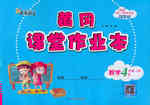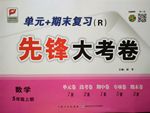题目内容
Winning the lottery (彩票) is not the pot of gold at the end of the rainbow for many past winners. Sad stories do exist in large numbers for the past lottery winners and that's why some financial experts say "70 percent of lottery winners will squander away (乱花) winning within a few years." Some end up losing all within two years, family relationships destroyed or even worse.
Wayne Schenk was an old soldier diagnosed with lung cancer. When he won a million dollars in a lottery he thought his troubles were over and he would get the advanced medical treatment that might save his life. But Lottery officials refused to pay him the total sum in a single payment and they said they could not make an exception to the regulations. When Schenk died in 2007, he'd only received one payment of $34,000.
Another lottery winner, Billy Bob Harrell, Jr. killed himself two years after winning 31 million dollars in the Texas lottery in 1997.He'd spent large amounts of money and given large amounts away, but he didn't end me expected peace that should have come with the freedom of money.
Other lottery winners have ended up in prison for crimes. Many suffer bankruptcy (破产) after the big jackpot (头奖) is spent and given away, including some of the eight people who won the 365 million Powerball in 2006.
The examples given paint a sad picture of what can happen if you win a big lottery jackpot, but fortunately, these examples don't tell the stories of all jackpot winners.
1.What is the main idea of the first paragraph?
A. Most lottery winners use up money quickly.
B. Most lottery winners don't really end up well.
C. Winning lottery means relationships destroyed.
D. Financial experts are against the lottery industry.
2.Why did lottery officials refuse to give Wayne Schenk the million dollars in one payment?
A. He was diagnosed with lung cancer.
B. He was unwilling to give away his money.
C. They had to observe the official rules.
D. They didn't want to disturb his peace.
3.The author supports his main idea by ____.
A. giving examples B. making comparisons
C. listing numbers D. listing reasons
4.In the following paragraph, the author will probably talk about_____.
A. advice given by financial experts
B. happy stories of the lottery winners
C. conclusion drawn by the author
D. regulations about lottery winning
1.B
2.C
3.A
4.B
【解析】
试题分析:本文通过举例论证了彩票大赢家的最终结果都并不是真正的好,他们有的挥霍无度,两年内就花光了所有的积蓄,有的家庭关系破裂或者更糟。
1.从第一段Some end up losing all within two years, family relationships destroyed or even worse可知大多数彩票的赢家结果都并不是真正的好。故选B。
2.题干信息在第二段第三行Lottery officials refused to pay him the total sum....,故后面紧接着解释了原因:they could not make an exception to the regulations,分析此句的意思可得知答案C, regulations与选项中的rules对应,同近义词替代。
3.文章列举了Wayne Schenk,Billy Bob Harrell 等例子,结合最后一段The examples given paint a sad picture of what can happen if you win a big lottery jackpot, but fortunately, these examples don't tell the stories of all jackpot winners可以得知文章主要是通过举例子来论证他的观点,故选A。
4.从短文的最后一段but fortunately, these examples don't tell the stories of all jackpot winners,说明接下来,作者要谈论的是彩票大赢家的开心愉快的故事,故选答案B。
考点:社会类议论文

 中考利剑中考试卷汇编系列答案
中考利剑中考试卷汇编系列答案 教育世家状元卷系列答案
教育世家状元卷系列答案 黄冈课堂作业本系列答案
黄冈课堂作业本系列答案 单元加期末复习先锋大考卷系列答案
单元加期末复习先锋大考卷系列答案
| |||||||||||||||||||||||||||||||||||||||||||||